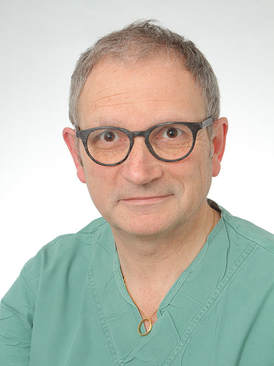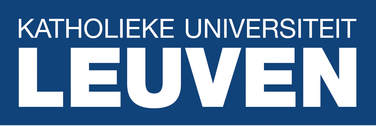Professor Jan Deprest
|
[email protected]
Organ Systems UZ Herestraat 49 - box 7003 06 3000 Leuven KU Leuven map tel. +32 16 3 44215 fax +32 16 3 44205 |
Jan Deprest home institution is at the Katholieke Universiteit Leuven and its University Hospitals Leuven (Belgium). Prof Deprest is currently the academic chair of the Department of Development and Regeneration and director of the Centre for Surgical Technologies. He is a leading international fetal surgeon who works two days a week at UCLH as a Consultant and at UCL as a Professor of Obstetrics and Gynaecology. At UCL he works in the Institute for Women's Health and the Translational Imaging Group.
Clinically he is the director of the fetal surgery programme in Leuven. He trained in fetal medicine in Leuven (Belgium), St George’s Hospital London (UK), Leiden (Holland) and attended the programme at Children’s Hospital Philadelphia (PA, USA). He established the Eurofoetus consortium, which is dedicated to the development of instruments and techniques for minimally invasive fetal and placental surgery. The Leuven Fetal Medicine Team focuses on antenatal modulation of lung development, e.g. for pulmonary hypoplasia due to congenital diaphragmatic hernia (CDH) as well as for bronchopulmonary dysplasia. He has headed several clinical studies dedicated to the prenatal prediction of survival of fetuses with isolated CDH using genetic testing, ultrasound and fetal MRI imaging. He developed a percutaneous method for fetoscopic placement of a balloon into the fetal trachea (“FETO”). In a European task force together with the University of Barcelona (Hospital Clinic) and London (King’s College Hospital) the team performed over 200 such procedures by 2009.
Clinically he is the director of the fetal surgery programme in Leuven. He trained in fetal medicine in Leuven (Belgium), St George’s Hospital London (UK), Leiden (Holland) and attended the programme at Children’s Hospital Philadelphia (PA, USA). He established the Eurofoetus consortium, which is dedicated to the development of instruments and techniques for minimally invasive fetal and placental surgery. The Leuven Fetal Medicine Team focuses on antenatal modulation of lung development, e.g. for pulmonary hypoplasia due to congenital diaphragmatic hernia (CDH) as well as for bronchopulmonary dysplasia. He has headed several clinical studies dedicated to the prenatal prediction of survival of fetuses with isolated CDH using genetic testing, ultrasound and fetal MRI imaging. He developed a percutaneous method for fetoscopic placement of a balloon into the fetal trachea (“FETO”). In a European task force together with the University of Barcelona (Hospital Clinic) and London (King’s College Hospital) the team performed over 200 such procedures by 2009.



